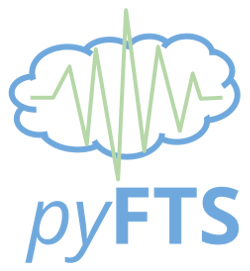"""
C. H. Cheng, R. J. Chang, and C. A. Yeh, “Entropy-based and trapezoidal fuzzification-based fuzzy time series approach for forecasting IT project cost,”
Technol. Forecast. Social Change, vol. 73, no. 5, pp. 524–542, Jun. 2006.
"""
import numpy as np
import math
import random as rnd
import functools, operator
from pyFTS.common import FuzzySet, Membership
from pyFTS.partitioners import partitioner
[docs]def splitBelow(data,threshold):
return [k for k in data if k <= threshold]
[docs]def splitAbove(data,threshold):
return [k for k in data if k > threshold]
[docs]def PMF(data, threshold):
a = sum([1.0 for k in splitBelow(data,threshold)])
b = sum([1.0 for k in splitAbove(data, threshold)])
l = len(data)
return [a / l, b / l]
[docs]def entropy(data, threshold):
pmf = PMF(data, threshold)
if pmf[0] == 0 or pmf[1] == 0:
return 1
else:
return - sum([pmf[0] * math.log(pmf[0]), pmf[1] * math.log(pmf[1])])
[docs]def bestSplit(data, npart):
if len(data) < 2:
return []
count = 1
ndata = list(set(np.array(data).flatten()))
ndata.sort()
l = len(ndata)
threshold = 0
try:
while count < l and informationGain(data, ndata[count - 1], ndata[count]) <= 0:
threshold = ndata[count]
count += 1
except IndexError:
print(threshold)
print (ndata)
print (count)
rem = npart % 2
if (npart - rem)/2 > 1:
p1 = splitBelow(data,threshold)
p2 = splitAbove(data,threshold)
if len(p1) > len(p2):
np1 = (npart - rem)/2 + rem
np2 = (npart - rem)/2
else:
np1 = (npart - rem) / 2
np2 = (npart - rem) / 2 + rem
tmp = [threshold]
for k in bestSplit(p1, np1 ): tmp.append(k)
for k in bestSplit(p2, np2 ): tmp.append(k)
return tmp
else:
return [threshold]
[docs]class EntropyPartitioner(partitioner.Partitioner):
"""Huarng Entropy Partitioner"""
def __init__(self, **kwargs):
super(EntropyPartitioner, self).__init__(name="Entropy", **kwargs)
[docs] def build(self, data):
sets = {}
kwargs = {'type': self.type, 'variable': self.variable}
partitions = bestSplit(data, self.partitions)
partitions.append(self.min)
partitions.append(self.max)
partitions = list(set(partitions))
partitions.sort()
for c in np.arange(1, len(partitions)-1):
_name = self.get_name(c-1)
if self.membership_function == Membership.trimf:
sets[_name] = FuzzySet.FuzzySet(_name, Membership.trimf,
[partitions[c - 1], partitions[c], partitions[c + 1]],partitions[c], **kwargs)
elif self.membership_function == Membership.trapmf:
b1 = (partitions[c] - partitions[c - 1])/2
b2 = (partitions[c + 1] - partitions[c]) / 2
sets[_name] = FuzzySet.FuzzySet(_name, Membership.trapmf,
[partitions[c - 1], partitions[c] - b1,
partitions[c] + b2, partitions[c + 1]],
partitions[c], **kwargs)
return sets
